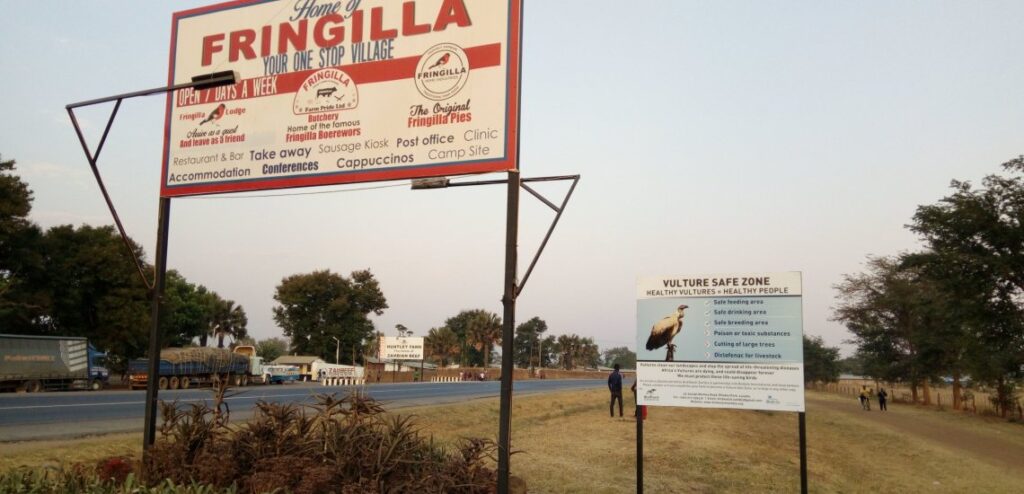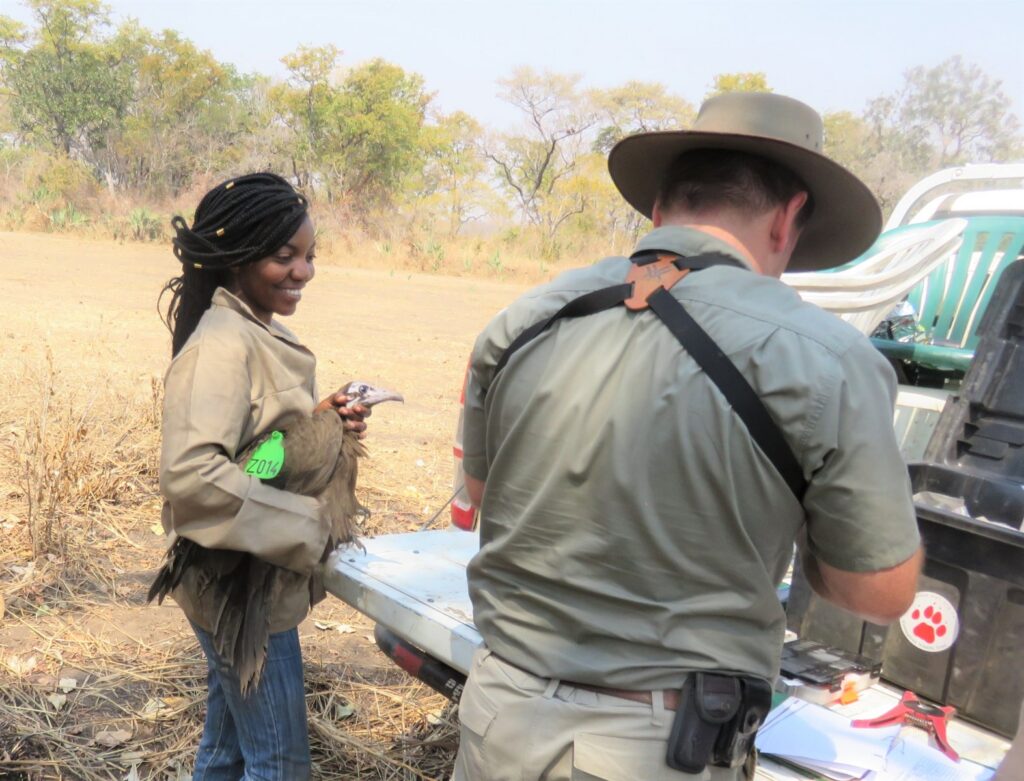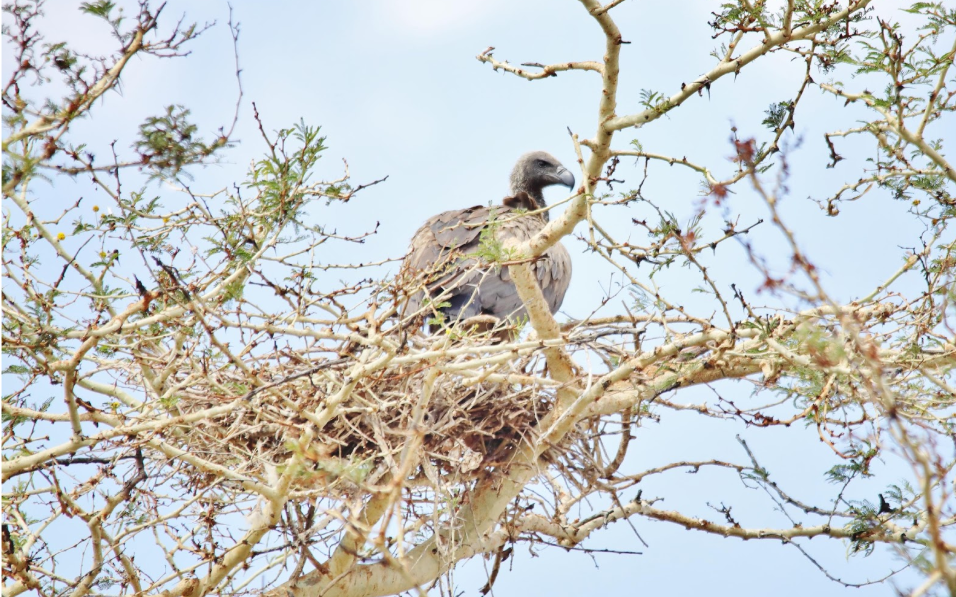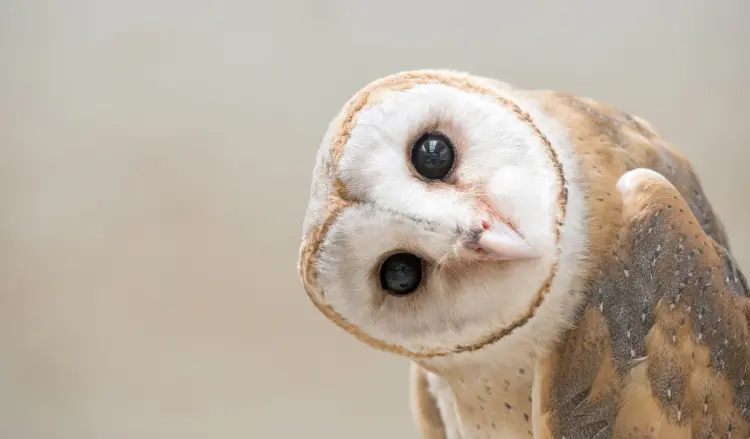Zambia’s Vulture Safe Zones provide hope for African vultures

Poisoning – both accidental and deliberate – has driven Africa's vultures to the brink of extinction. But hope is at hand: a new series of poison-free safe spaces are protecting vultures, raising awareness and advancing research in Zambia.
By Mary Malasa and Lewis Kihumba
Dressed in green, Kelvin Mkandawire is part of a group of researchers carrying out patrols across the sweeping plains of the Kafue Flats. On this hot windy afternoon, they are conducting ground nest surveys of vultures within this Important Bird and Biodiversity Area, which is home to over 450 animal and bird species, including vultures.
Over the last 30 years, vulture populations in Zambia have declined catastrophically. This situation is replicated across Africa, where vulture populations have declined by up to 97%. Zambia is home to seven vulture species, four of which are Critically Endangered and two Endangered. Like the rest of Africa, Zambia’s vulture populations have suffered a human-induced population decline of up to 98% in some species, such as the White-headed Vulture Trigonoceps occipitalis and White-backed Vulture Gyps africanus. The main culprit is poisoning: either accidentally, through ingetsing livestock carcasses that had been treated with painkillers that are toxic to vultures, or deliberately.
“Although vultures play a critical role in the environment, their numbers have declined greatly over the last three decades, posing a challenge to the delicate ecological balance,” notes Kelvin Mkandawire, project research assistant at BirdWatch Zambia (BirdLife Partner).
To save the country’s dwindling vulture populations, BirdWatch Zambia is creating a poison-free environment through establishment of Vulture Safe Zones – a system that has previously proven successful across Asia.
The Vulture Safe Zones are being set up in partnership with farm owners, and with support from the National Geographic Society. These areas provide safe feeding and roosting sites for vultures, with no risk of poisoning. Since the start of the initiative in 2017, BirdWatch Zambia has expanded it to cover three farms in Chisamba. Today, the Vulture Safe Zones cover over a thousand square kilometres of land, including farms and a game reserve.

“It’s always exciting to work with BirdWatch Zambia, and I’m glad to be part of the team that drives the conservation and protection of Endangered bird species such as vultures,” says Nicola Carruthers, ecologist at the Munyamadzi Game reserve, the only game reserve with a Vulture Safe Zone so far.
We hope that the succes of these sites will go a long way in stemming Zambia’s vulture population decline. Since the Establishment of Vulture Safe Zones, BirdWatch Zambia has been able to facilitate consistent research on vultures and several other bird species within the sites. Therefore, as well as being safe havens for vultures, Vulture Safe Zones have become important outposts for monitoring vulture populations outside of protected areas. The birds are now regularly surveyed, threats are analysed, and vultures have even been tagged to study their movement.
“These Vulture Safe Zones are a boost in protecting vulture populations, and are a critical strategy in the long-term survival of vultures in the country and across the country,” adds Mkandawire.
As well as annually monitoring species’ populations, BirdWatch Zambia checks that Vulture Safe Zones are operating within the correct criteria, and whether there are any threats to vultures in the area.
A vital aspect of conservation is the involvement of local communities. To this end, BirdWatch Zambia engages nearby residents, raising awareness on the ecological importance of vultures and the need to save them. Farm owners, managers and workers who operate within the Vulture Safe Zones are educated the importance of protecting natural habitats from man-made threats. An education and awareness campaign around the area has also targeted school children and their parents who own, manage or work in these farms. This dialogue seeks to change local perceptions about vultures and influence farm management practices. This can lay the groundwork for future expansions: working with partners, BirdWatch Zambia is seeking to increase the area of Vulture Safe Zones in the country to at least 2,500 square kilometres by 2025.

Vultures may not be the most beautiful-looking birds, but their presence is now starting to be appreciated within the Vulture Safe Zones. At Fringilla farm, where BirdWatch Zambia commemorated International Vulture Awareness Day in previous years, the local community is beginning to acknowledge and appreciate the importance of these Critically Endangered birds that they share their surroundings with.
“I never knew I could see vultures in these areas, and how big they are. It would be nice to have excursions into Vulture Safe Zones more often to appreciate these birds,” says Mirriam Chanda, a pupil from Mwayasunka school, who has taken part in BirdWatch Zambia activities in the area.
“Vultures are unappreciated yet extremely important. I have seen how fast they are able to clear up carcasses. Not only is this process quick and cost-effective when it comes to waste disposal, but it also helps reduce the spread of diseases among animals here on the farm,” says Joleyza Mboozi, a supervisor at Fringilla farm.
“For this to happen, we need more resources to expand this vulture conservation model, which could also be replicated elsewhere across the continent,” concludes Mkandawire.
Find out more about BirdWatch Zambia’s vulture conservation work at www.birdwatchzambia.org/vulture-safe-zones/
Latest news from Africa
Stay up to date
Sign up to receive the latest bird conservation news. You’ll also receive updates about our projects, science and other ways to get involved including fundraising.
Thank you for your support, we are committed to protecting your personal information and privacy. For more information on how we use your data, please see our Privacy Policy. You can unsubscribe from emails at any time by using the link in the footer of any email from us.




